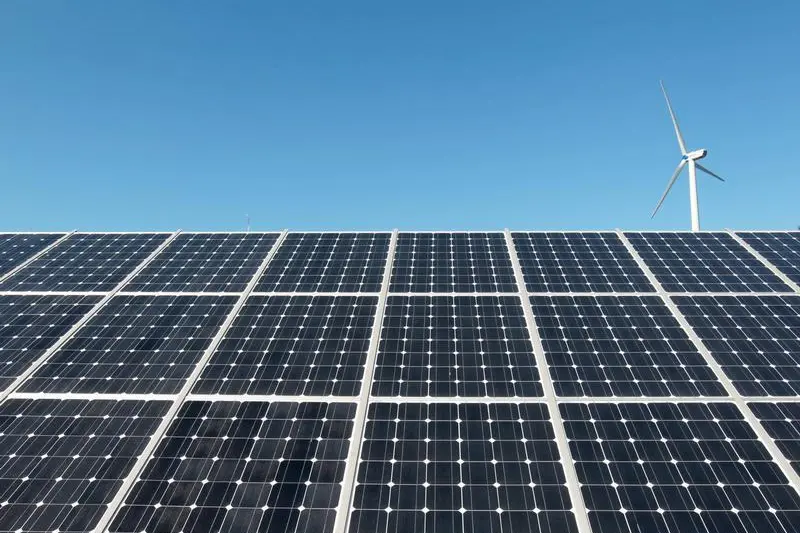PHOTO
Bahrain - Two national action plans aimed at saving energy worth BD230 million and increasing Bahrain’s renewable energy target by five per cent in the next six years were announced yesterday.
The National Renewable Energy Action Plan (NREAP) and the National Energy Efficiency Action Plan (NEEAP) have been prepared by Bahrain’s Sustainable Energy Unit (SEU) which was established as a centre by His Majesty King Hamad on Sunday.
The BD1.75m centre, which will report directly to the Cabinet through its chairman, Electricity and Water Affairs Minister Dr Abdulhussain Mirza, consists of a 13-member expert panel headed by acting executive director Alexander Al Samahiji.
Achieve
The centre, separate from the Electricity and Water Authority (EWA), aims to achieve Bahrain’s 5pc use of renewable energy by 2025 equivalent of 250 megawatts of electric power as well as 6pc improvement of energy efficiency.
Details of the plans and other initiatives underway were detailed by Dr Mirza at a Press conference held at the EWA headquarters in the Diplomatic Area yesterday.
“The centre has prepared two plans which aim to enhance the quality and efficiency of services provided to the citizens and residents as well as attract more local and international investments to Bahrain to implement projects and technologies via the use of solar and wind renewable energy as well as diversification of energy sources,” said Dr Mirza.
“The NREAP targets to increase the share of renewable energy sources in the national energy mix by 5pc by 2025, which translate to a capacity of 250MW and later increase it by 10pc by 2035.
“The policies adopted are net metering, tender-based feed-in tariff and renewable energy mandate for new buildings.”
The projects under the NREAP are solar systems for government buildings, new towns, housing projects and public works, waste to energy (biogas and others), industrial renewable energy initiatives, onshore/offshore wind farm, large-scale solar farm on available land and renewables in infrastructure projects (causeways and airport).
The GDN reported previously that net metering launched in January last year enables consumers to generate their own power from renewables for self-consumption and feed the excess to the national grid, while 535 government buildings including schools and hospitals have been identified under the tender-based feed-in-tariff set up in July.
“The NEEAP has 22 initiatives which aim to save energy worth BD230m by 2025, along with meeting the increasingly growing demand on electricity in Bahrain,” said Dr Mirza.
“It covers a wide spectrum including buildings, industry, government, transport, electricity supply and others through building energy efficiency code, vehicle efficiency, green efficiency, street lighting and awareness programmes.
“A national committee for the follow-up of the implementation of these plans till date had 10 meetings since it was approved by the Cabinet in December 2016.
“Among the major initiatives are solar power, and a list of companies and contractors qualified to install solar energy systems is available on the EWA and SEU websites, www.ewa.bh and www.seu.gov.bh.
Identified
“We are now discussing with Tamkeen and banks to provide financing facilities for individuals and institutions.
“About 535 government buildings including hospitals and schools have been identified and the centre has appointed companies through a tender for legal and financial services by consultants with expertise and experience.
“The first batch of these buildings is expected to produce 50MW of renewable energy from this initiative by the end of this year or early next year.
“Consultants will be responsible for preparing a series of procedures and a document package for the tender to offer the roofs of government buildings for developers and contractors to invest in the installation of renewable energy systems.”
The centre has also appointed an advisory firm for the preparation of a wind atlas for Bahrain to provide the necessary information indicating the potential of wind energy in various regions on land and in regional waters.
The interactive atlas inaugurated in April last year is available on the SEU website.
Among other initiatives are training programmes for solar energy system builders and contractors. A total of 170 such personnel have been trained last year.
© Copyright 2019 www.gdnonline.com
Copyright 2019 Al Hilal Publishing and Marketing Group Provided by SyndiGate Media Inc. (Syndigate.info).





















